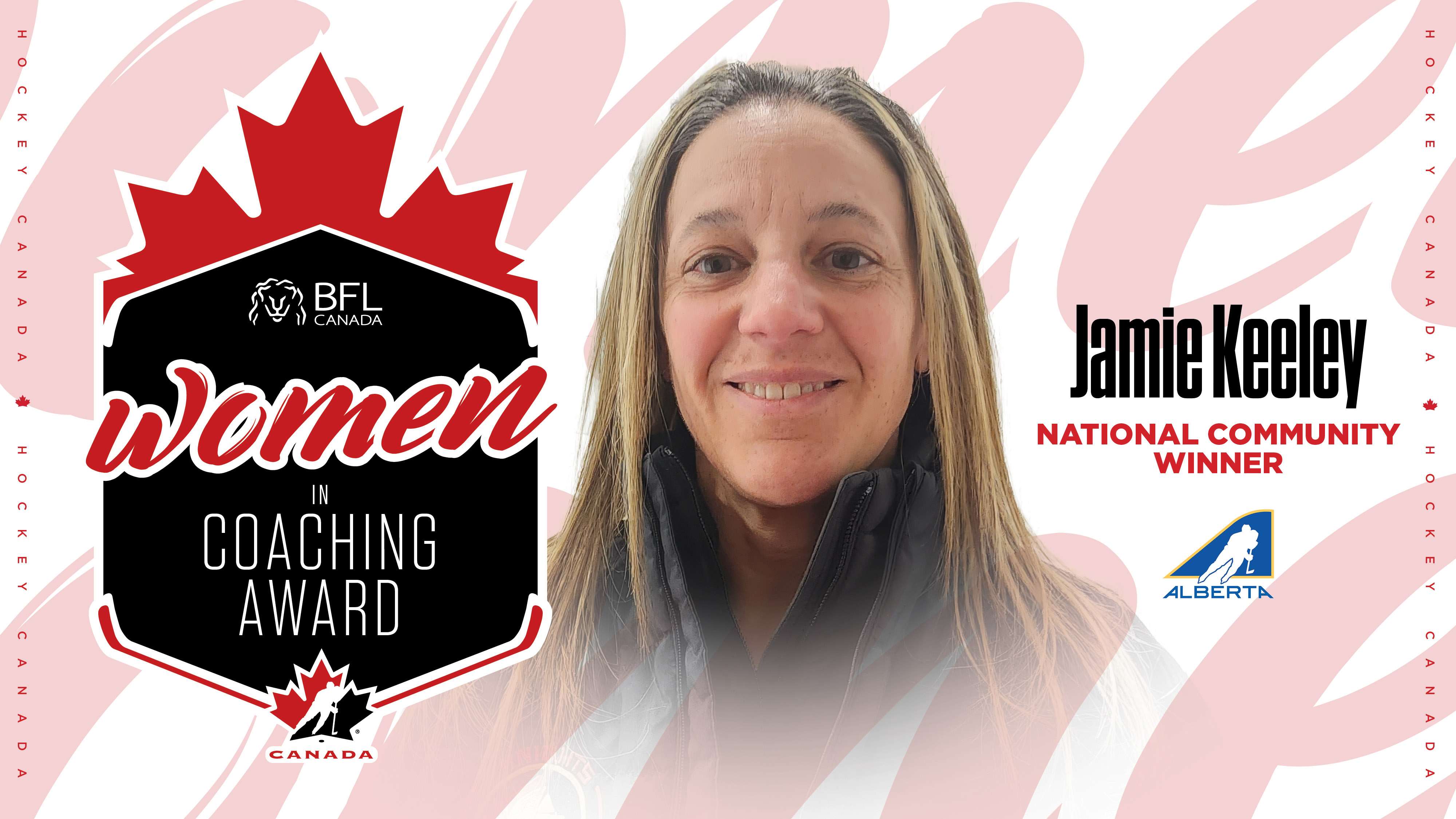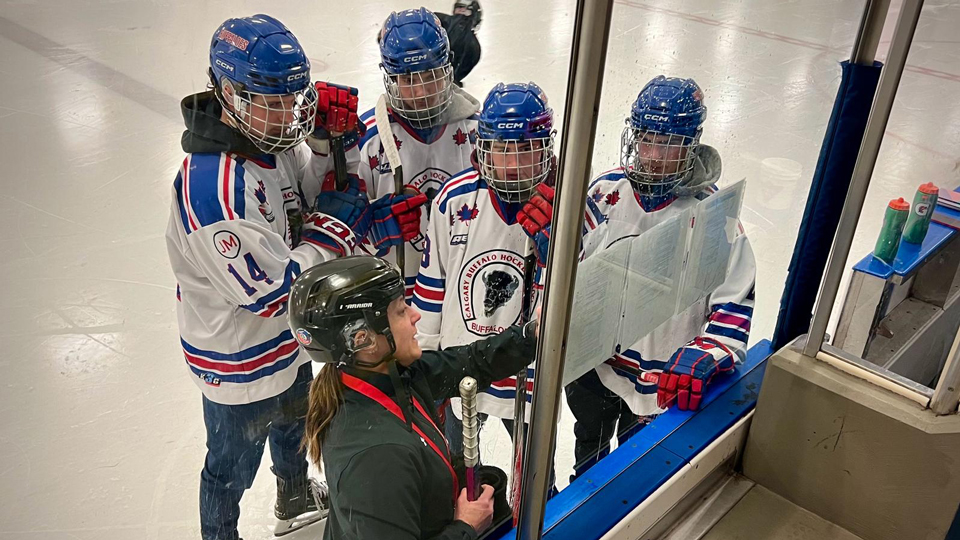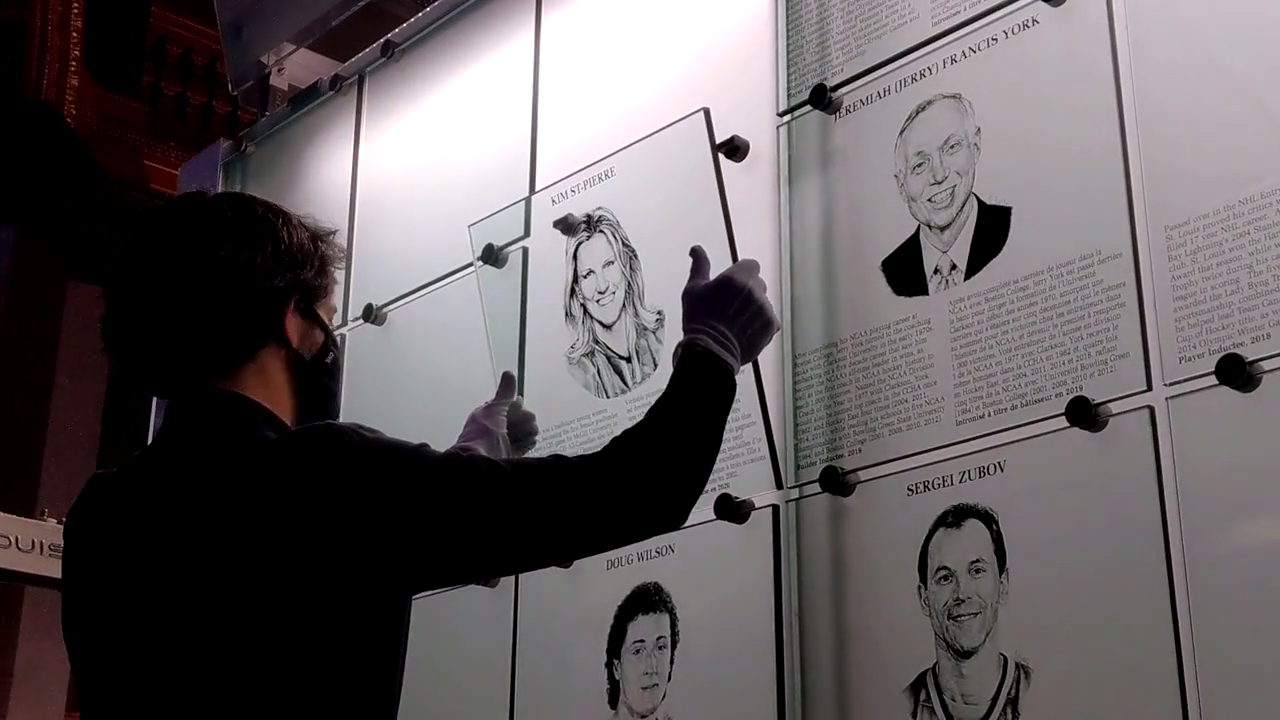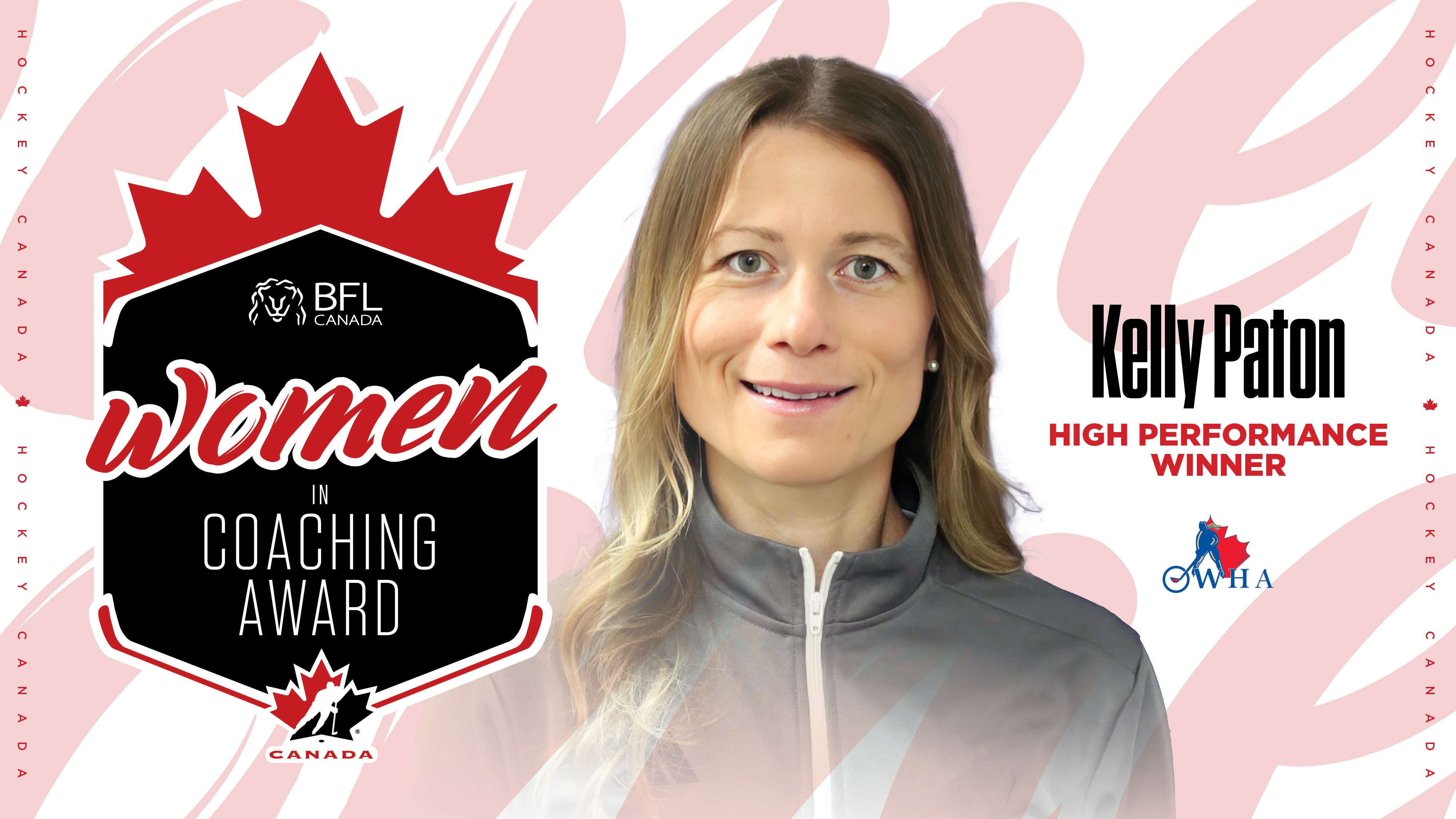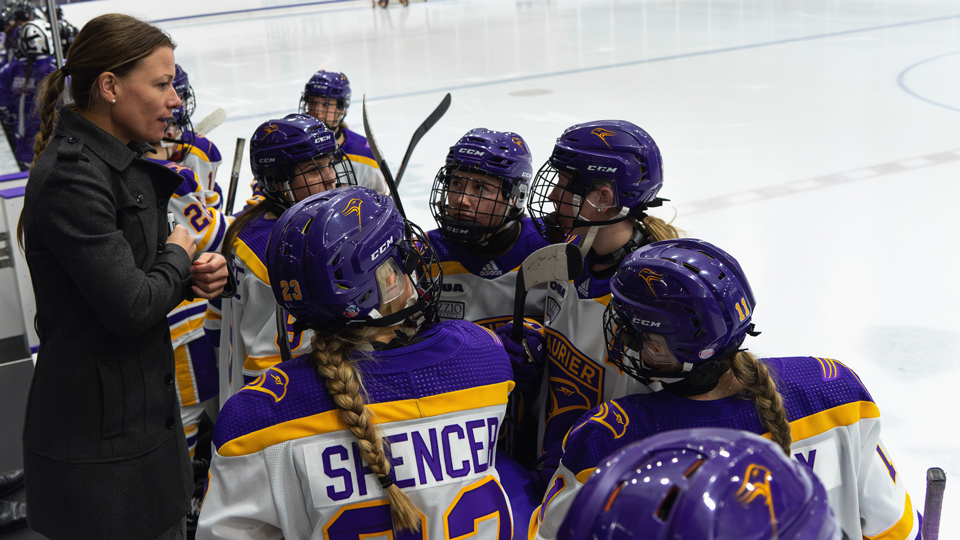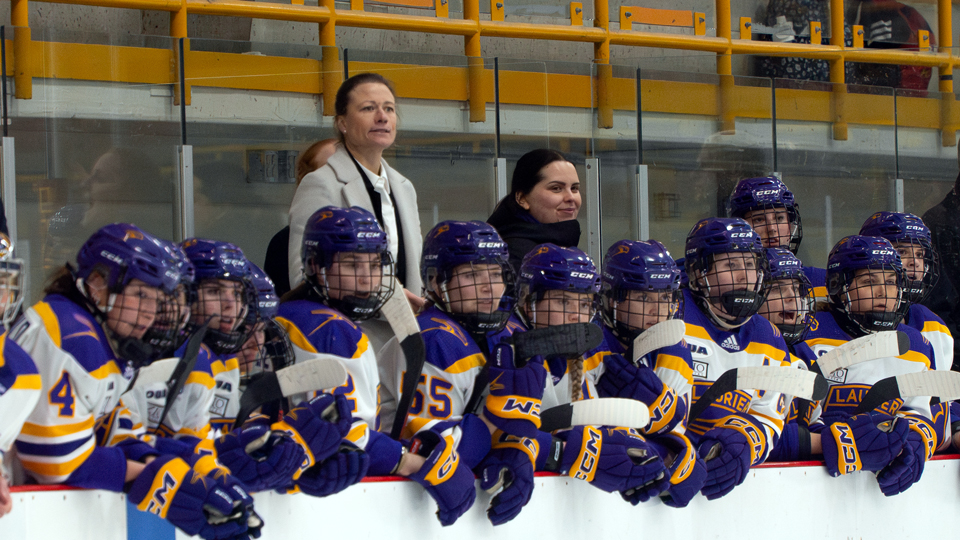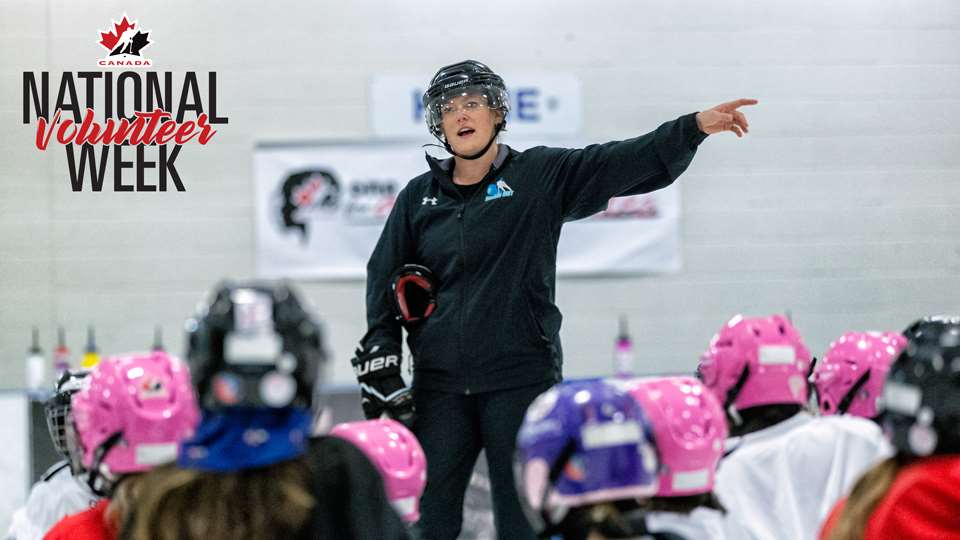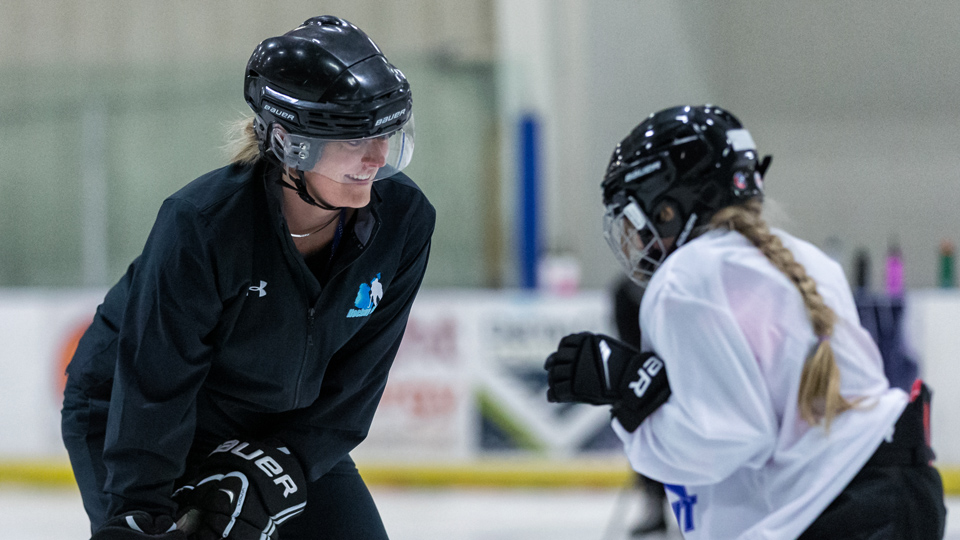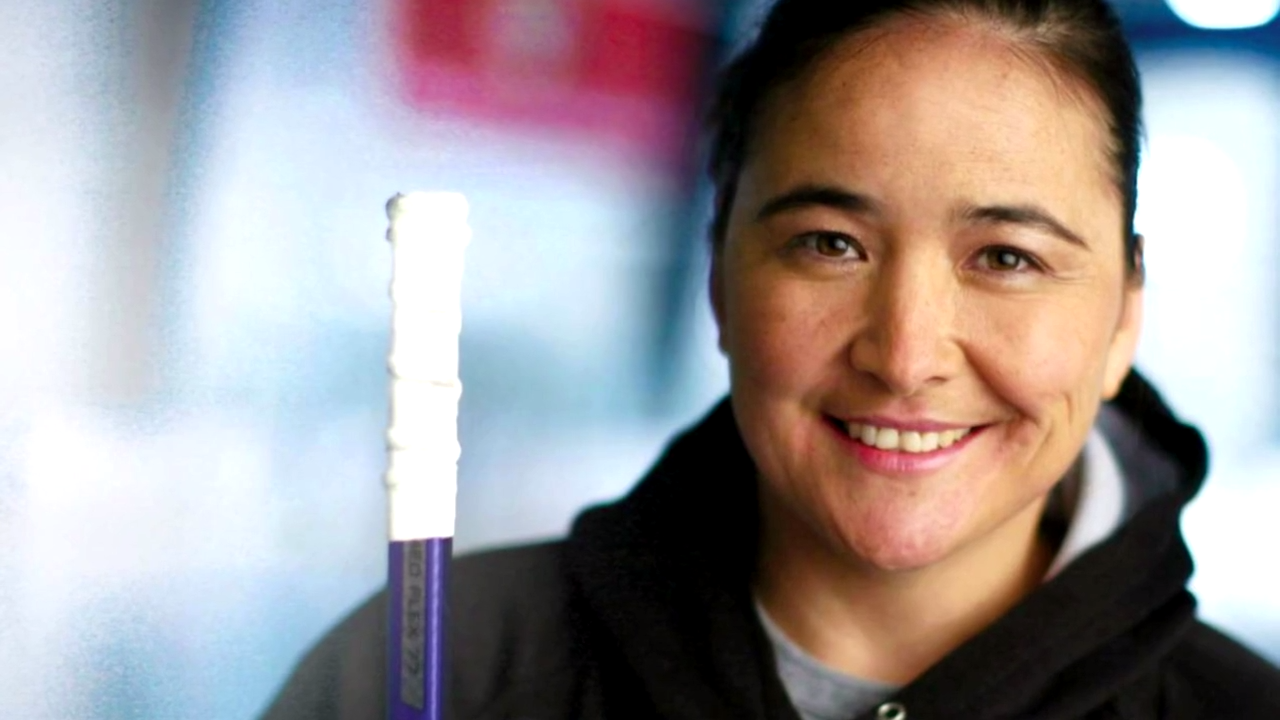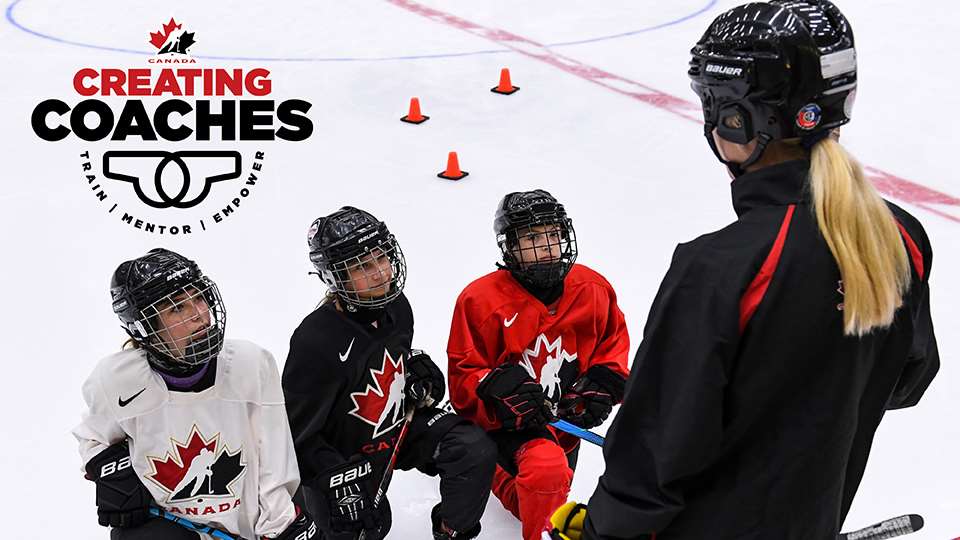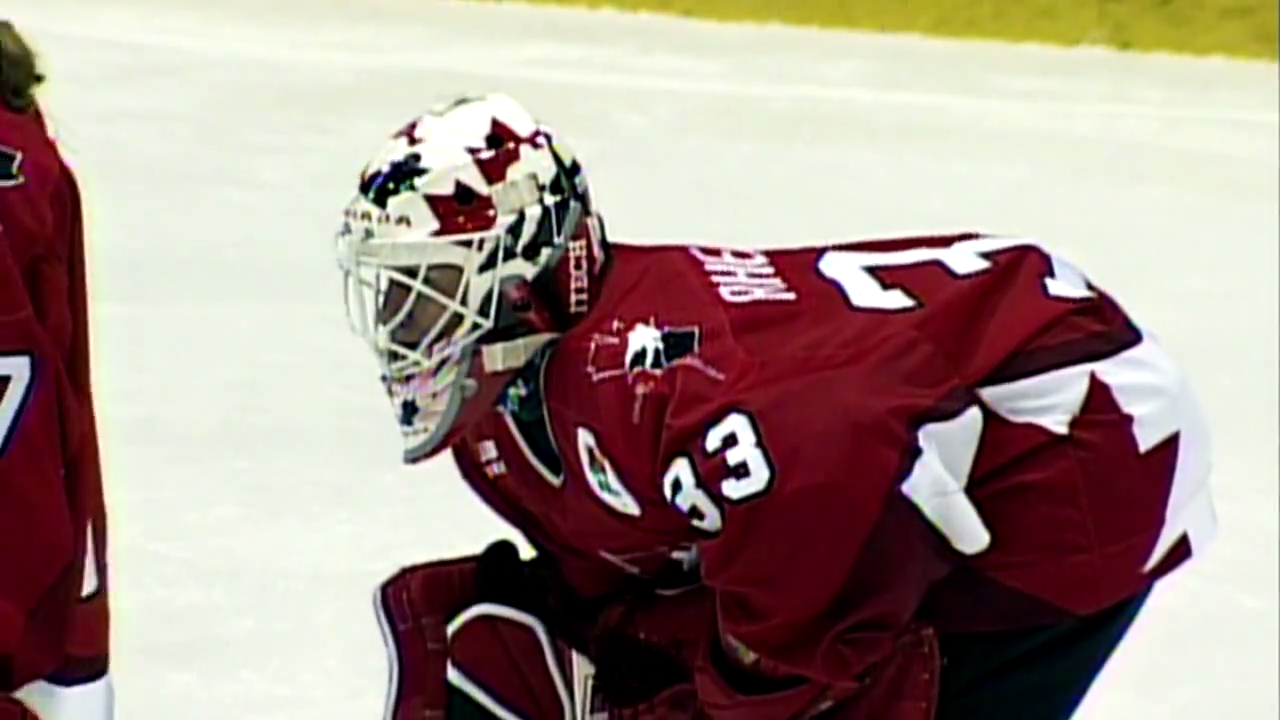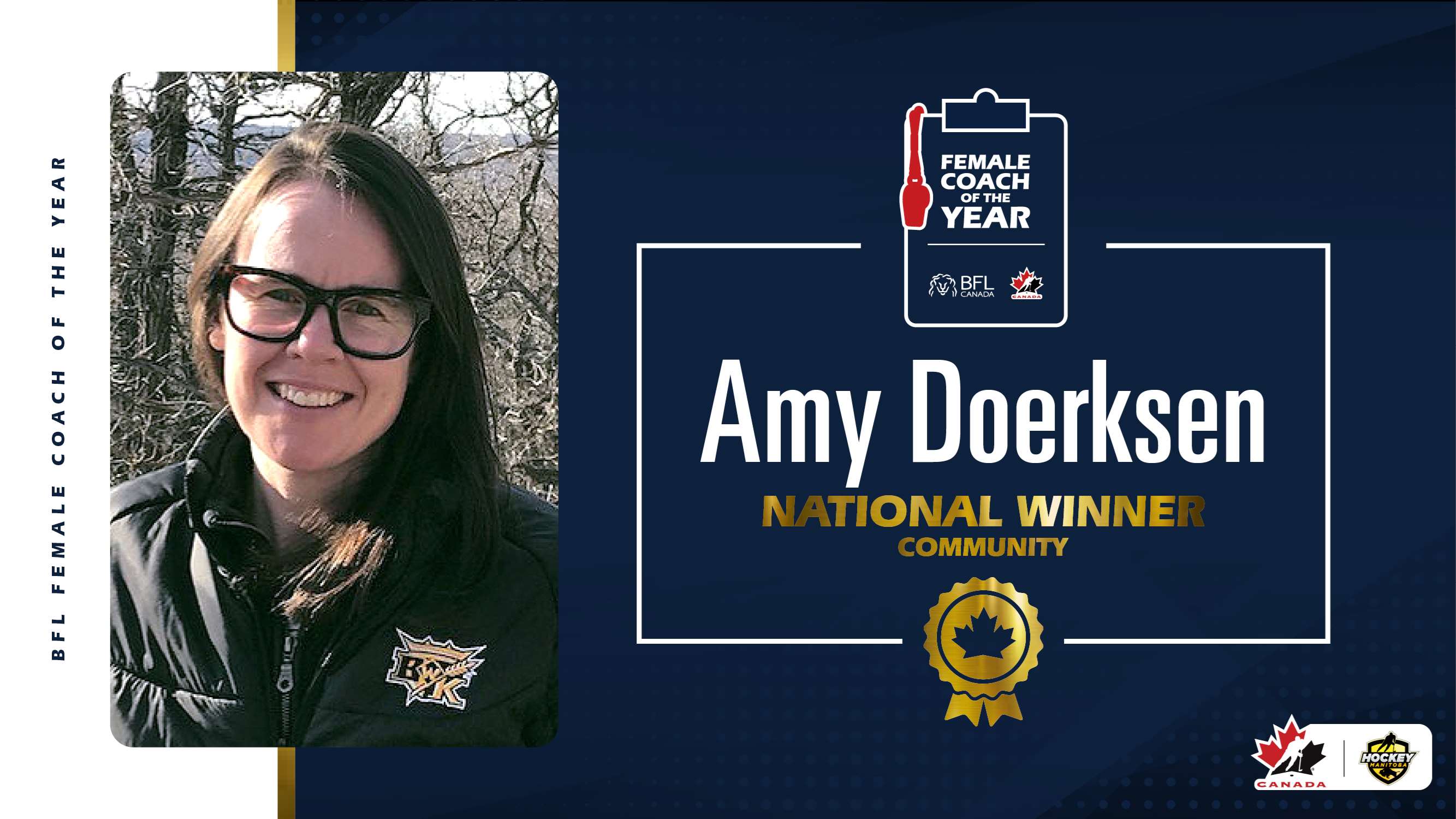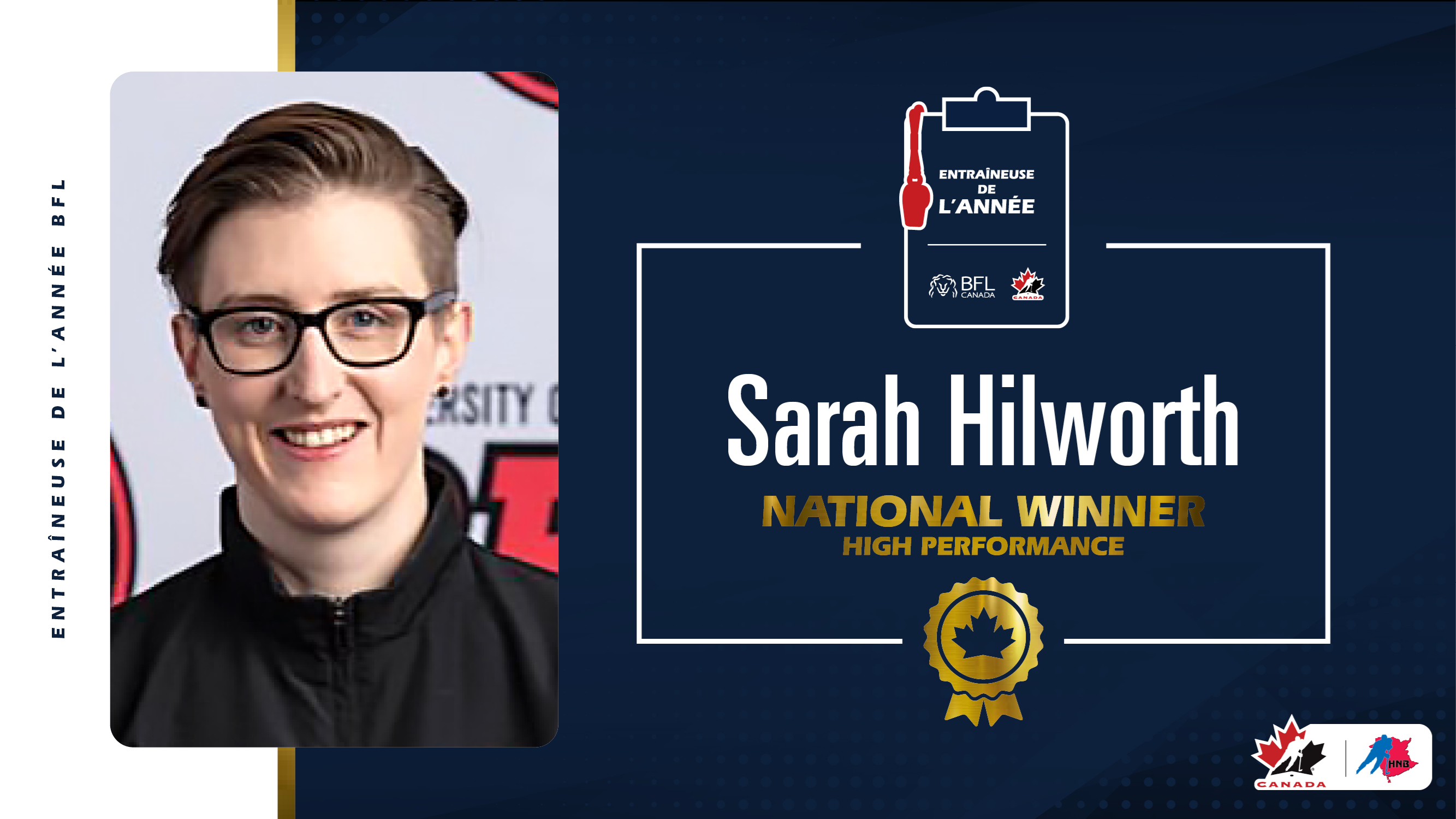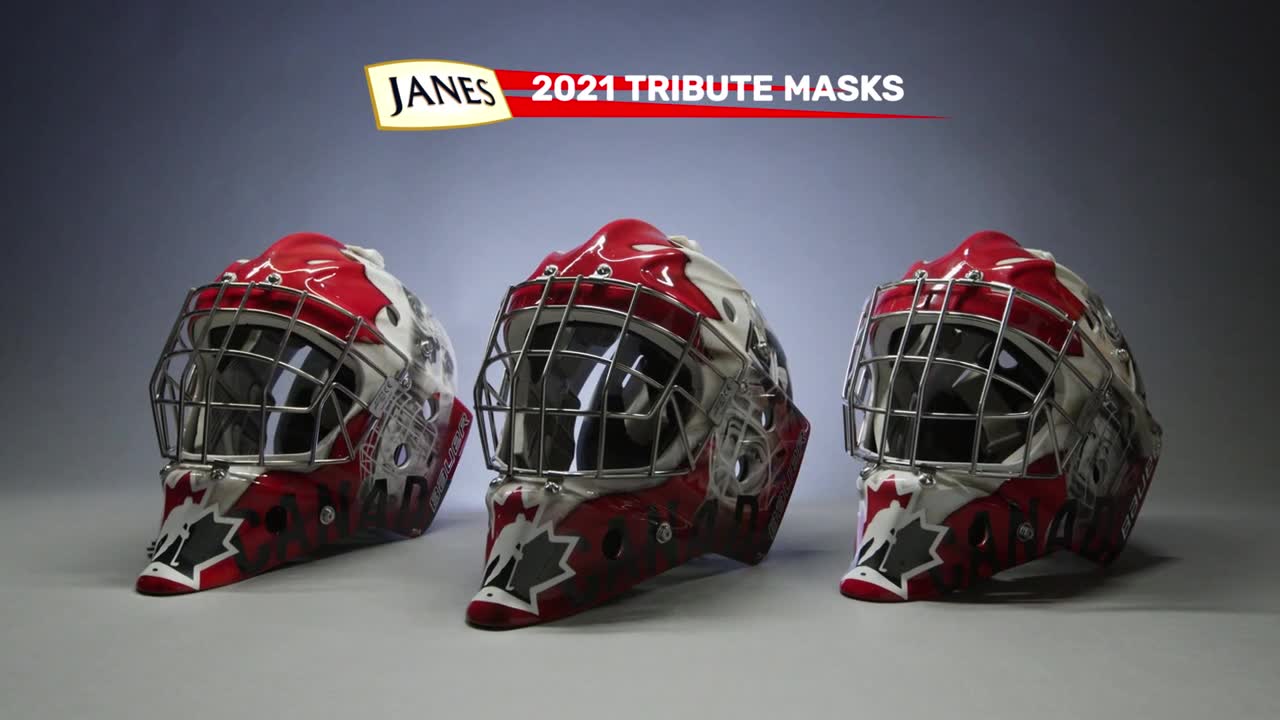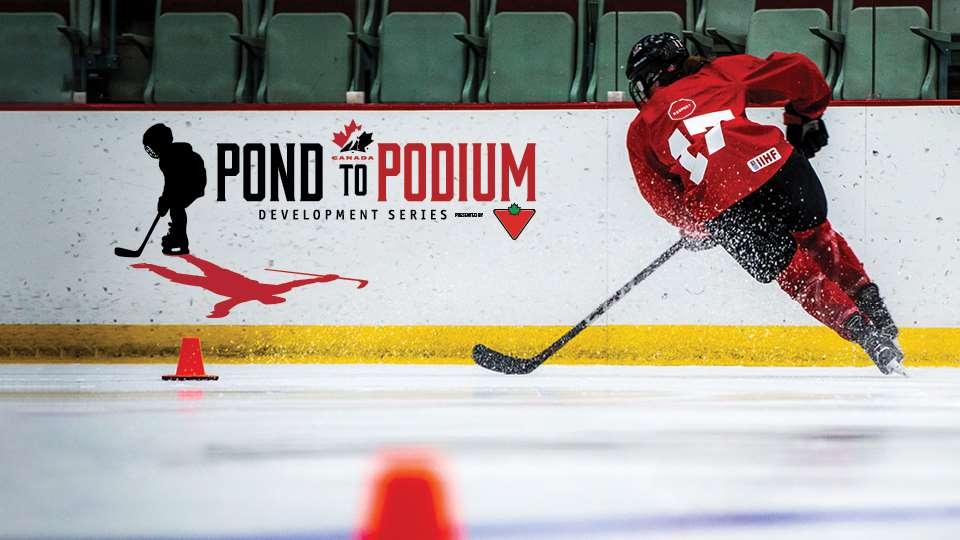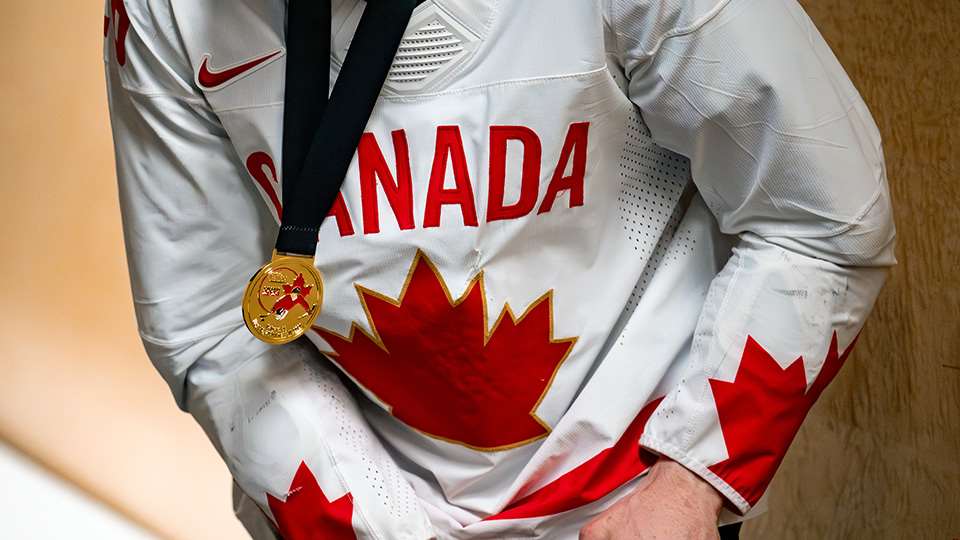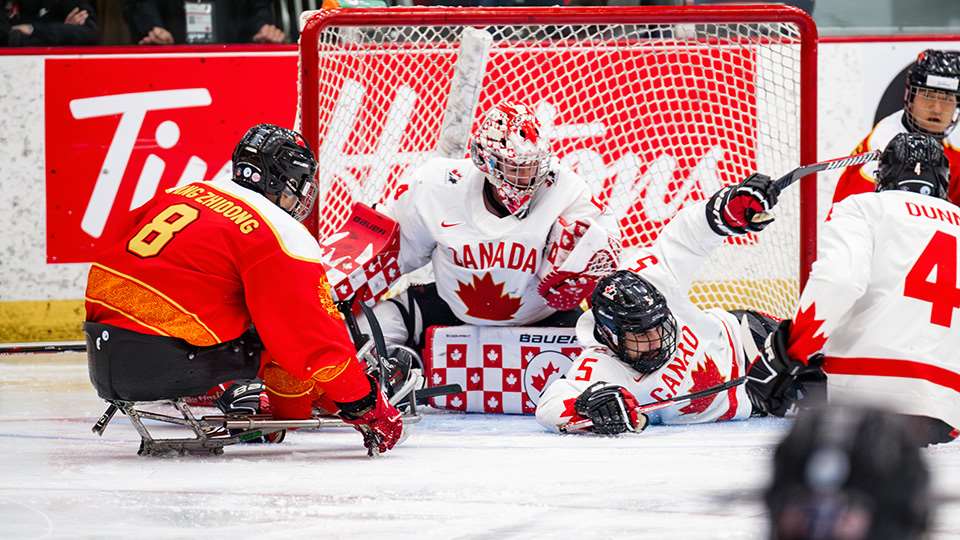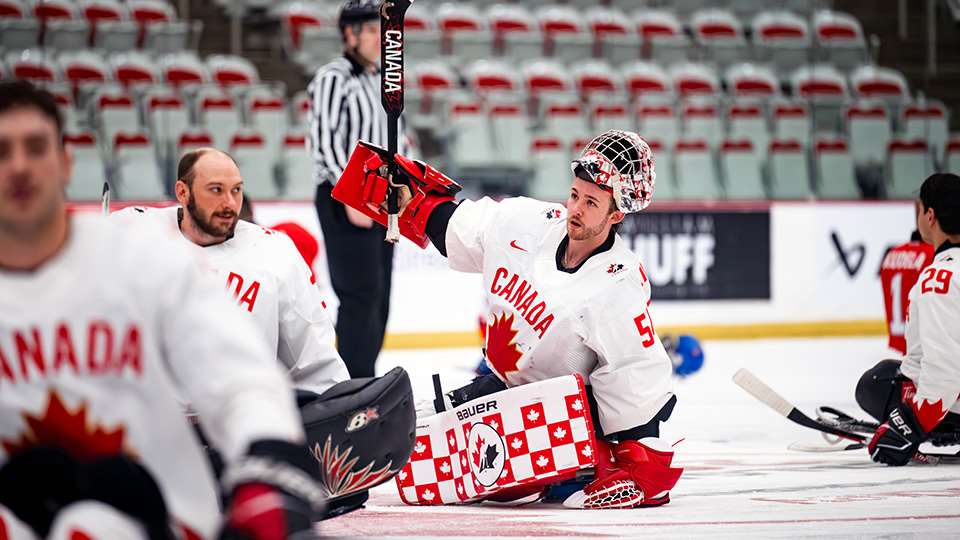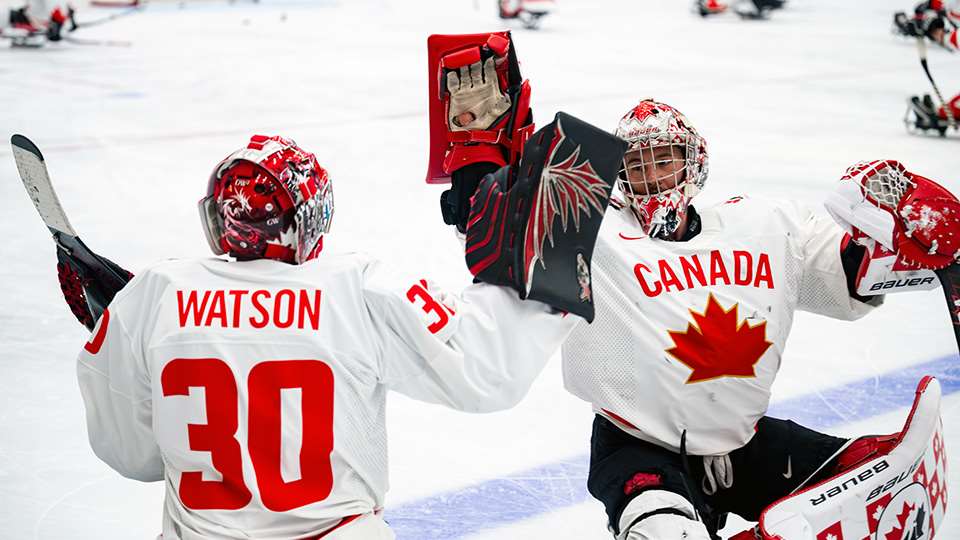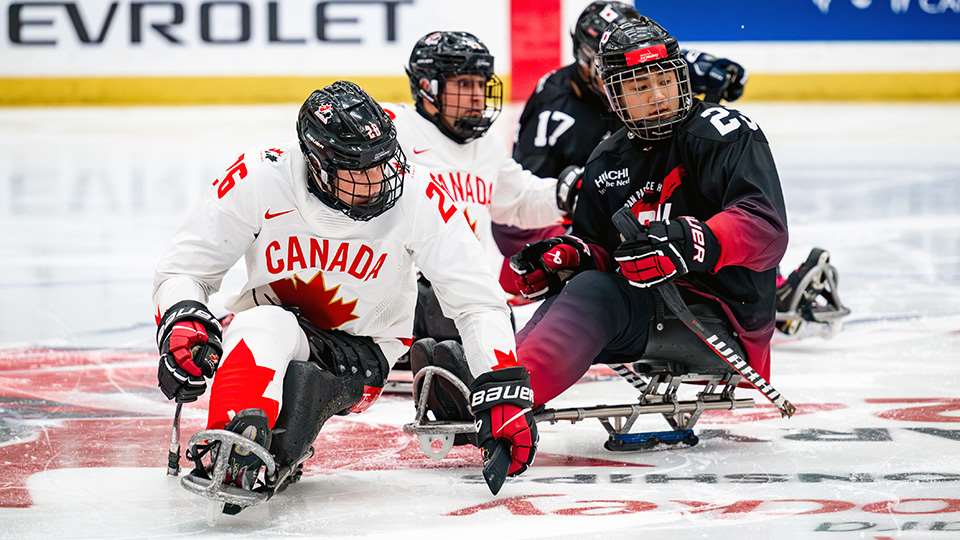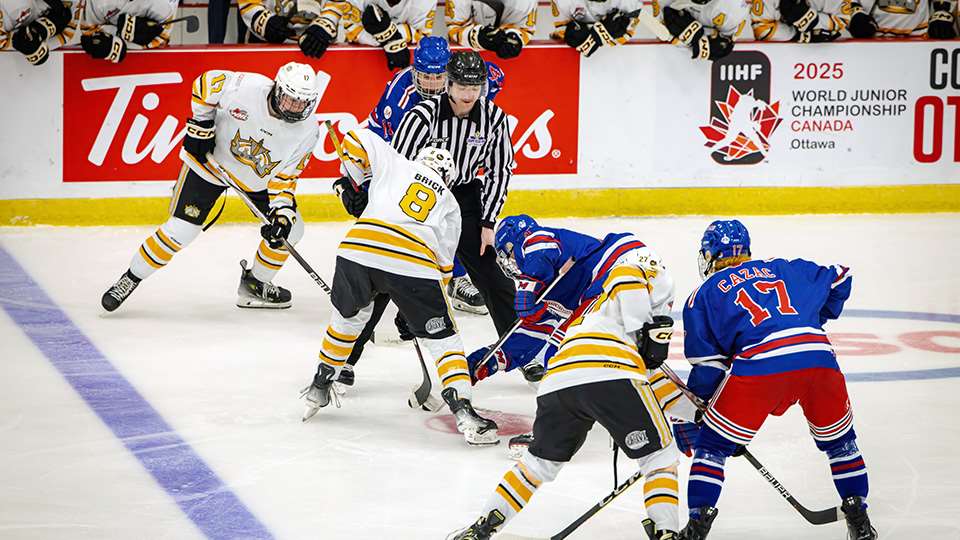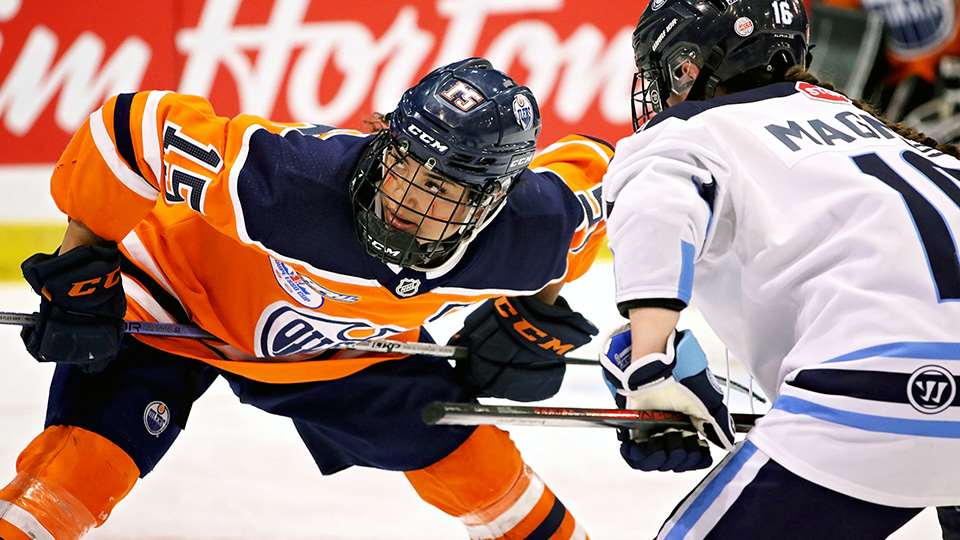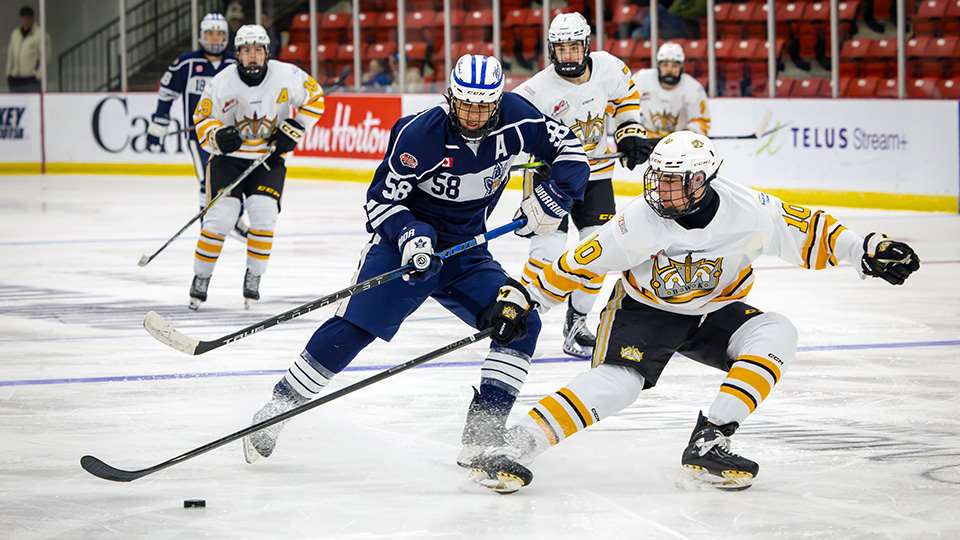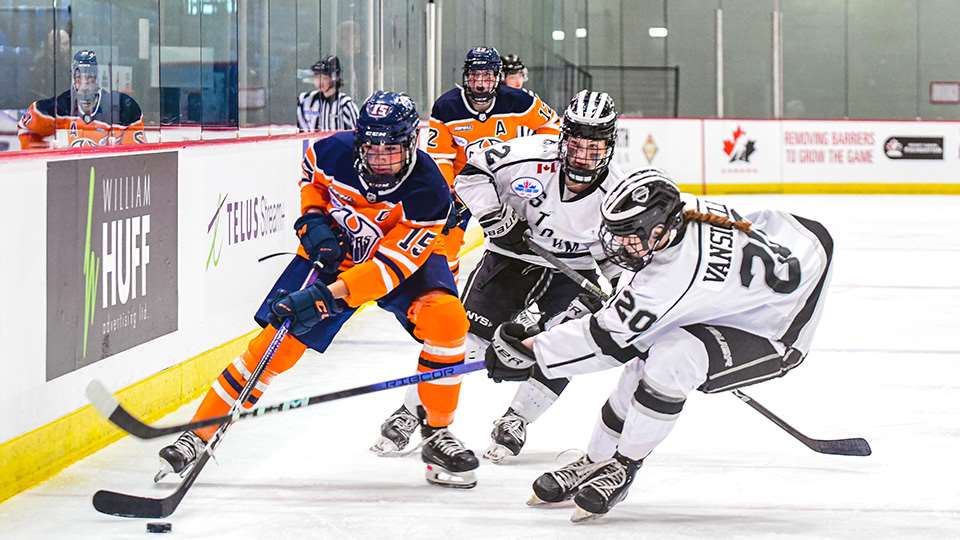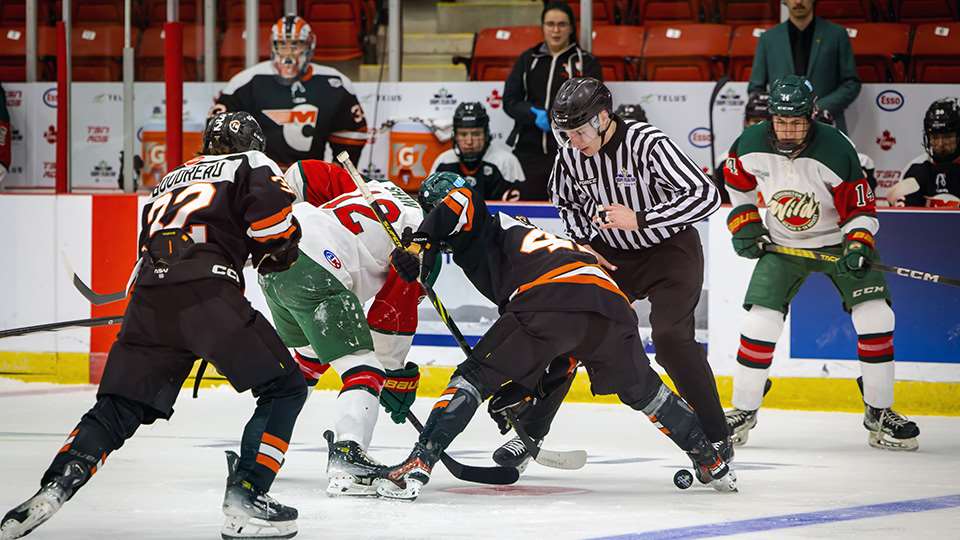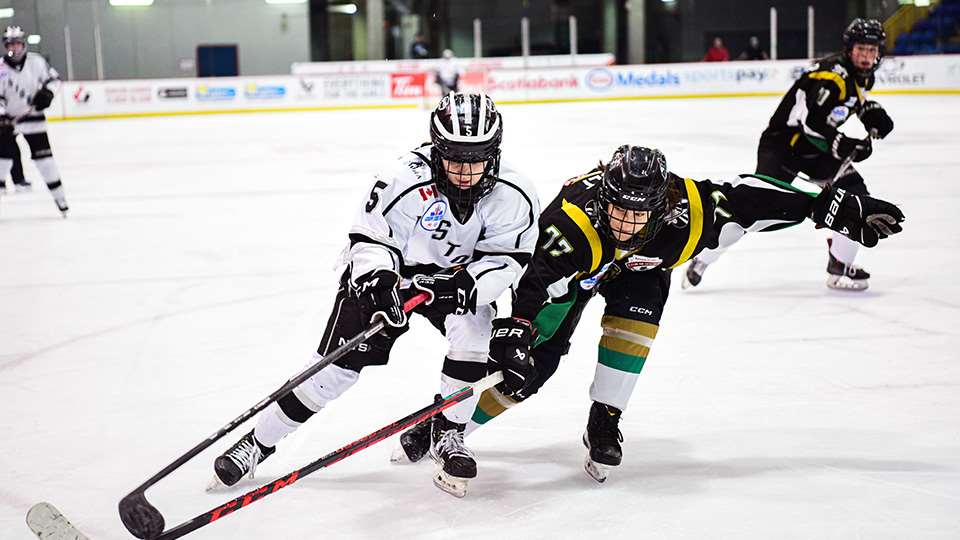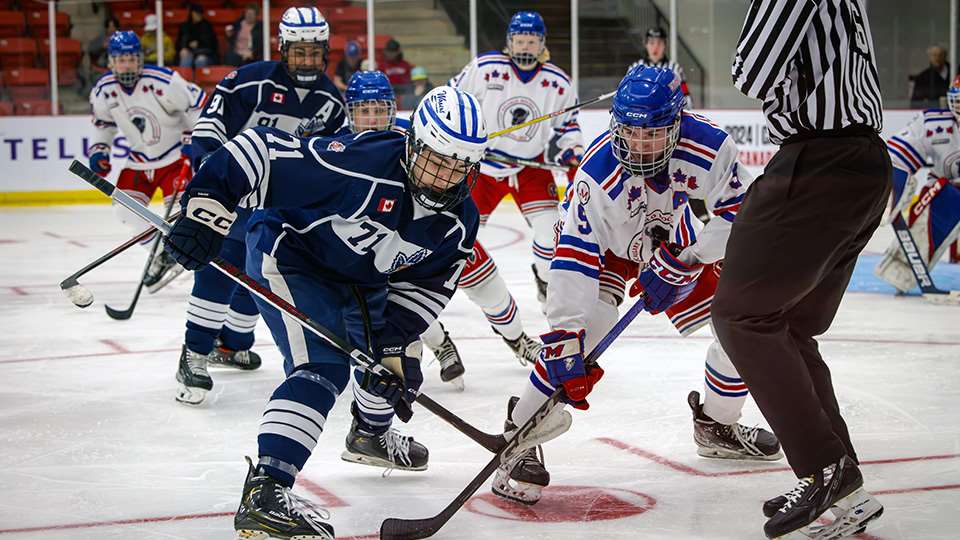
Schedule
Team Canada (Men)
Hlinka Gretzky Cup | Aug. 5-10, 2024
U17 World Challenge | Nov. 3-9, 2024
World Junior A Hockey Challenge | Dec. 10-17, 2023
IIHF World Junior Championship | Dec. 26, 2024-Jan. 5, 2025
Spengler Cup | Dec. 26-31, 2023
IIHF U18 World Championship | April 25-May 5, 2024
IIHF World Championship | May 10-26, 2024
Search
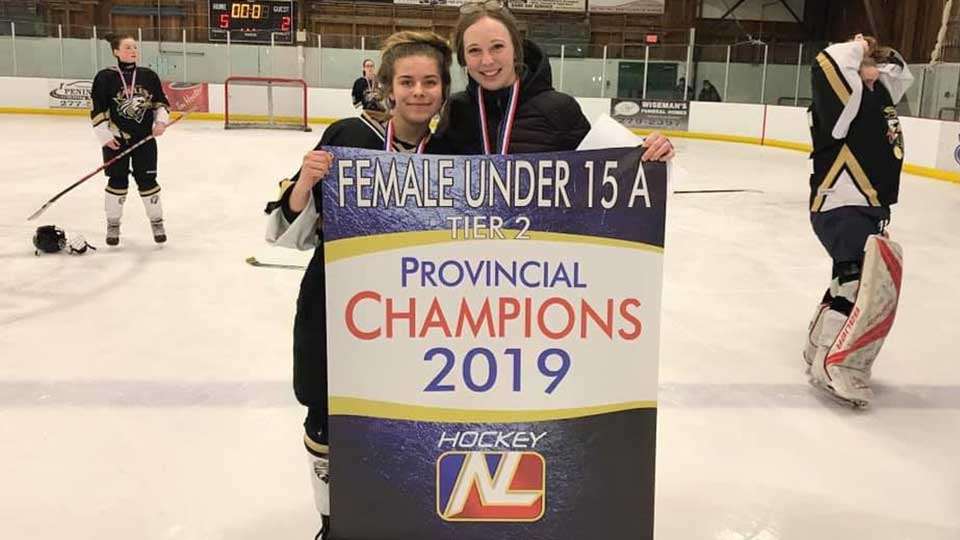
Creating an equal opportunity
A BFL Female Coach of the Year recipient for her work on and off the ice in Torbay, N.L., Callie Langmead operates with one goal in mind: get more girls into the game

Callie Langmead’s passion for coaching comes from personal experience.
Growing up in Flatrock, N.L., Langmead played hockey with the boys because there wasn’t a girls’ team. Over the past 12 years, she has helped coach various Northeast Eagles Minor Hockey Association (NEMHA) teams out of Torbay, N.L.
Three years ago, Langmead, along with fellow coach Bill Everson and NEMHA female director Harold Kelly, created an all-girls program within the association, and they haven’t looked back.
“When I played, I had to go to a different organization to play girls hockey,” says Langmead. “There weren’t enough girls in our area, but we have grown since then.”
The women’s hockey program started with a U15 team and two U12 teams; today, it includes four in U9, three in U12, and one each in U15 and U20.
“It is great to see how much girls’ hockey has grown in our area since we started the program just three years ago,” she says.
Her leadership in the program and guidance behind the bench helped Langmead win the BFL Female Coach of the Year Award (Community) for Newfoundland and Labrador.
“It was so cool to be recognized. I didn’t expect it,” Langmead says. “I coach because I love it. It was so nice to see that people appreciate all the effort and work I’ve put in.”
Langmead hopes to inspire the players she coaches through her own experiences and dedication to the game. She left the East Coast in high school to play prep-school hockey at Balmoral Hall in Winnipeg before returning home for university.
“The girls know I went away for hockey, and I want to show them that there are opportunities for them to play hockey off the island,” she says. “I just want to give back to the girls I coach. My coaches impacted me growing up and not just my game, and I hope I am doing that for them.”
Everson nominated Langmead for the award and said it was “heartwarming” to see her win.
“I get to see the work and dedication she puts into the game,” he says. “[The players] all love Callie. I don’t know how to explain it – they are all drawn to her. When she speaks, they all listen.”
It was fitting for Langmead to win the award, Everson says, since he and Kelly had been thinking of ways to recognize her for all she has done for the NEMHA.
“We’ve been talking the last couple of years on recognizing Callie because of the time she commits to minor hockey, especially the girls. We’ve been trying to think of what we could do for her, and when this came up, it just made sense.”
Langmead’s joy for the game started early as she watched her dad play, but it wasn’t until she was 10 years old that she laced up her own skates and began to play after a friend signed up to play.
“I didn’t even know that girls could play hockey at that age,” she says. “I love that it is becoming normal that girls who are three or four are jumping on the ice, and they belong.”
That sense of belonging and opportunity is what drives Langmead to continue to coach at the grassroots level, so that younger girls feel welcome and connected to the sport.
“Girls should have that equal opportunity that the boys have,” she says. “If you want to play, you can play on an all-girls team, and you can get on the ice when you are young. It is great to see these girls get the opportunity that I didn’t have growing up.”
Langmead shares the same mentality when it comes to having women behind the bench.
“I want to show the girls that not only can they play, but they can grow up and coach too if they want to,” she says. “Being a female coach, especially to teenagers, I can relate to them better. I want them to realize they have the same knowledge and expertise to play and coach.”
Langmead is finishing her master’s degree in clinical epidemiology and starting medical school in August. Still, she hopes to continue coaching with the NEMHA and in addition to teaching power skating at Xtreme Hockey.
“As long as I stay on the ice, I will be happy.”
For more information: |
- <
- >

















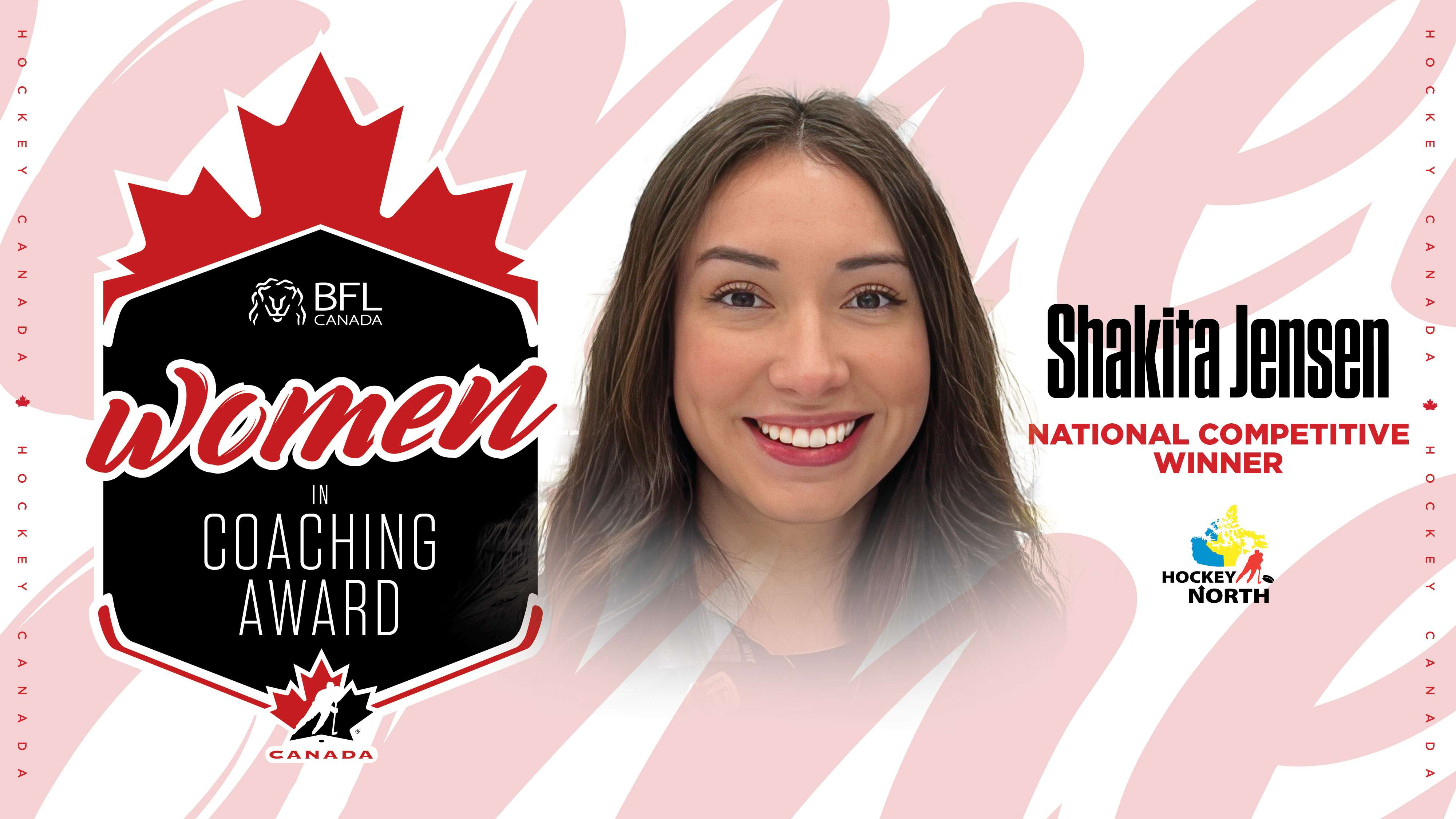
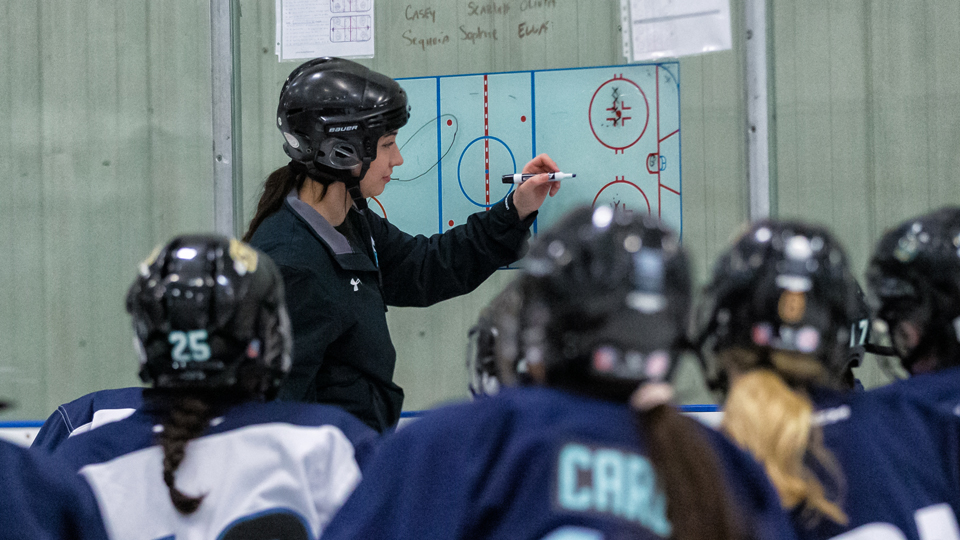 Jensen was in the right place at the right time to get her first head
coaching position. There was a shortage of coaches in her association, so
they asked Jensen—who initially applied to be an on-ice helper—if she wanted
to be a head coach.
Jensen was in the right place at the right time to get her first head
coaching position. There was a shortage of coaches in her association, so
they asked Jensen—who initially applied to be an on-ice helper—if she wanted
to be a head coach.
